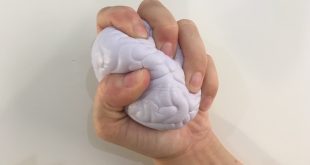Cognitive behavioral therapy (CBT) is a highly effective form of psychotherapy applied to treat a range of mental illnesses including, but not limited to, depression, anxiety, somatic symptom disorders, substance use disorders, trauma-related disorders and eating disorders. CBT originated as an application of psychological research on learning theory to the …
Read More »A systematic review and meta-analysis of dropout rates from dialectical behavior therapy in randomized controlled trials
Many randomized controlled trials (RCTs) have shown that dialectical behavioral therapy (DBT) is effective for many different mental health problems. However, one important factor to consider when interpreting findings from RCTs of DBT is patient dropout, as dropout can compromise the validity of trial findings. A greater understanding of patient …
Read More »The development and validation of the Beliefs About Losing Control Inventory (BALCI)
Obsessive-compulsive disorder (OCD) is characterized by unwanted intrusive thoughts (obsessions) and repetitive behaviour like excessive checking and cleaning (compulsions). Cognitive theory proposes that everyone (or nearly everyone) has unwanted intrusive thoughts, but that those with OCD hold maladaptive beliefs that lead them to interpret such thoughts as catastrophic. As a …
Read More »Anxiety Sensitivity and Daily Cigarette Smoking in Relation to Sleep Disturbances in Treatment-Seeking Smokers
Sleep disturbances are highly common, particularly among individuals with anxiety symptoms or disorders. In fact, sleep disturbances and anxiety influence each other: sleep problems can serve as a risk factor for the development of anxiety disorders and, conversely, anxiety disorders can contribute to problematic sleep. Anxiety sensitivity, the fear of …
Read More »Psychometric properties of the Insomnia Catastrophizing Scale (ICS) in a large community sample
To catastrophize about poor sleep is likely something that everyone will encounter during episodes of sleep difficulties. The tendency to catastrophize about sleep disturbance and associated daytime consequences is particularly common among individuals with insomnia disorder. Due to a lack of self-report instruments designed to assess insomnia catastrophizing, we developed …
Read More »Predictors of treatment attendance and adherence to treatment recommendations among individuals receiving Cognitive Behavioral Therapy for Insomnia
Insomnia is very common, affecting up to 37% of adults, and is linked to a host of mental and physical health problems. Cognitive Behavioral Therapy for Insomnia (CBT-I) is recommended as the first line treatment for insomnia by the National Institutes of Health, the American Academy of Sleep Medicine, and …
Read More »The effects of safety behavior availability versus utilization on inhibitory learning during exposure
Exposure therapy is a highly effective treatment for anxiety disorders. This approach calls for individuals to remain in anxiety-provoking situations long enough to acquire threat-disconfirming information about the situation and build new safety associations. A commonly debated aspect of exposure delivery is the inclusion/exclusion of safety behaviors. Safety behaviors are …
Read More »Emotion regulation and motives for illicit drug use in opioid-dependent patients
Cognitive-behavioral approaches for people with opioid use disorder may be more widely circulated in clinical settings with the recent Food and Drug Administration approval of a mobile app that provides cognitive behavioral therapy (CBT) to patients with opioid use disorder. As such, perhaps now more than ever, enhancing the precision …
Read More »Why we should know more about dropout: Identifying change-dropout patterns can help to estimate treatment progress in internet interventions
In their scientific work, researchers rely on the data available to them to draw conclusions based on empirical results. However, when values are missing the interpretation of results can be difficult especially if it remains unknown what caused the dropout to occur. With regard to studies in clinical psychology, this …
Read More »Materials used to support cognitive behavioural therapy for depression: A survey of therapists’ clinical practice and views
Cognitive behavioural therapy (CBT) is an effective treatment for depression and patients who learn skills in CBT seem less likely to relapse. Between-session tasks (‘homework’), where patients practise skills learnt during sessions with their therapist are an integral part of therapy. Doing homework outside of the therapy session is associated …
Read More » Cognitive Behaviour Therapy A peer reviewed, multidisciplinary journal devoted to the application of behavioural and cognitive sciences to clinical psychology and psychotherapy.
Cognitive Behaviour Therapy A peer reviewed, multidisciplinary journal devoted to the application of behavioural and cognitive sciences to clinical psychology and psychotherapy.









